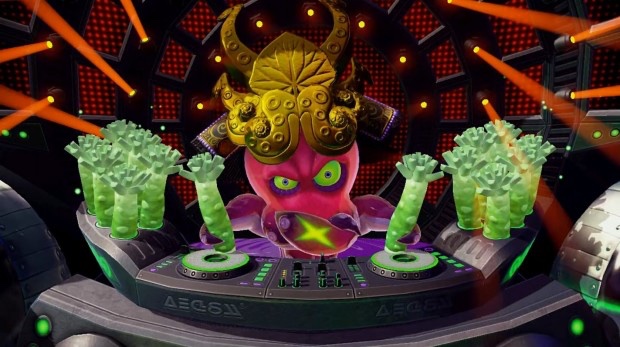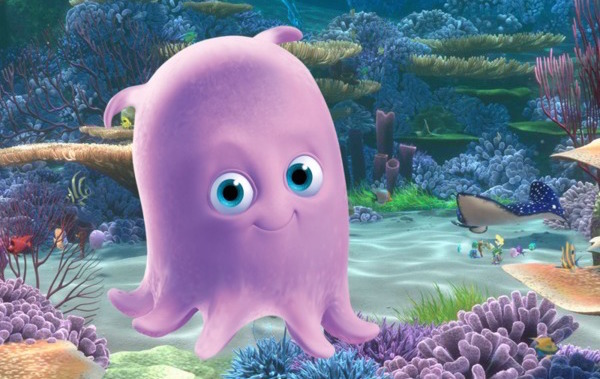When it comes to determining how smart octopi are, you don’t really need to go further than this video of an octopus unscrewing a jar from the inside to escape to know that our eight-limbed “friends” are operating on a worryingly human level. A team of researchers from the University of Chicago recently determined that the mighty octopus is actually…more than human.
Fun fact: There is an international Cephalopod Sequencing Consortium, which includes scientists from the University of Chicago; University of California, Berkeley; and Okinawa Institute of Science and Technology. By sequencing the genome of the California two-spot octopus (a.k.a. Octopus bimaculoides), they discovered that octopi possess brain-building genes called protocadherins, which were thought to exist only in vertebrates (things with spines, like humans or sentient carnivorous books). While octopi have the equivalent to eight spinal cords—one running down each arm—the cephalopods are clearly invertebrates and aren’t supposed to have this brain-building protein.
Except they do…a lot. While humans have about 60 protocadherins, the octopus genome was found to have 168, nearly three times the neural wiring capacity than humans (who tend to be several times larger than octopi, except in our nightmares).
Octopi are demonstrably smart, and they stole all our best brain-genes, so why aren’t we visiting octopus cities on the ocean floor these days? It’s not because they don’t have a key evolutionary ability of humanity–the emergent ability to conceptualize and imagine scenarios–but because they don’t get enough time to use that ability. An octopus only lives three to five years; long enough to get their Bachelor’s degree in Literature, but not long enough to get hired to write articles for sassy websites.
The research team also hypothesized that cephalopod neurons don’t function well over long distances, forcing octopi to evolve a “short-range brain” that works better in bursts and isn’t operationally centralized.
One of the study’s co-senior authors, Clifton Ragsdale (associate professor in Neurobiology and Organismal Biology and Anatomy from the University of Chicago) was quoted as saying, “The late British zoologist Martin Wells said the octopus is an alien. In this sense, then, our paper describes the first sequenced genome from an alien.” But it’s more interesting to think of the cephalopods as very much of Earth. That we’d be sharing the planet with them if only they had lifespans that allowed them to act on their intelligence.
This premise sounds so familiar…












I’ve been saying this about octopods for awhile.(Yes, Stubby, it is octopods, not octopi)
@1: The correct Greek plural is octopodes, though either “octopuses” or simply “octopus” is the preferred English plural. “Octopi” is a misuse of a Latin plural suffix for a Greek-derived word, and I share your distaste for it.
Personally, I prefer octopi simply because I like the word, but isn’t it actually octopodes, Greek-wise?
Anyway, they are super cool, and just waiting to be hybridized into something crazy.
Fear not! All three versions of the plural (octopuses, octopi, octopodes) are correct in English. Here is a handy video from the folks at Merriam-Webster that helps explain it all.
It’s articles like this that make me wish I had pursued my career as a mad scientist so I could splice these genes with that of a sea turtle. Alas, I did not.
And now I will fearfully curl up in a corner as I remember Nova’s terrifying documentary on Cttlefish.
Probably not completely in line with these findings, but there’s a Peter Watts story (or, actually, a fragment of a larger one that I heard him read aloud this past month) that’s relevant: http://www.rifters.com/crawl/?p=5875
The first line is, I once spoke to a man who’d shared consciousness with an octopus.
No kidding! Oktapodi @@@@@ https://vimeo.com/25270148
@2, HA! I actually FAR prefer Octopi! But I try to be etymologically accurate
I still say octopeople is more appropriate (with a nod to the Phineas & Ferb pluralization of platypus).
(Another factor in why they aren’t building cities; most octopus mothers starve to death while guarding their eggs; there’s no generational passing of knowledge like there is with apes, dolphins, or humans.)
@11/Cybersnark: Just to be even more of a language pedant, “people” is not strictly a plural word. The plural of “person” is more correctly “persons”; “people” is a collective singular noun referring to an entire population, community, or nation, e.g. “the American people.” (“Person” is derived from the Latin persona, an identity or character, while “people” is derived from the Latin populus, a population or community.) Although in common usage, “people” has come to be treated interchangeably with “persons.”
It’s actually kind of a shame to think that cephalopods have an intelligence comparable to humans (or potentially even superior in some ways) but don’t live long enough to develop it. They could be just a few mutations — or an uplift — away from becoming capable of civilization. Although we might want to colonize space before that happens, because long-lived, civilized octopus or squids could be more than our meager mammalian intelligence could compete with. Sure, they live in a different environment, but look how much damage our land-based civilization has already done to the oceans.
Octopi Wall Street! Power to the persons!
As a speaker of Greek I find the use of octapodes to be somewhat unusual, perhaps going back to an archaic form. In Modern Greek the singular is octapodi and the plural is octapodia.
If you accept octapodes, we can have multiple versions of the plural in English and Greek. Does this happen in other languages also? Can we ask an octopus?
It is a clear demonstration of the advanced intelligence of octopussies that they are not wasting time debating what is the plural of their names; they are spending their time more productively in promoting reality television and it’s inevitable end-product: octopod domination!
Sure, they live in a different environment, but look how much damage our land-based civilization has already done to the oceans.
On the other hand, when the seas rise, our abandoned cities will be ideal octopus habitats.
would an octopus spend as much time trying to figure out the best plural?
Wish i was a writer so i could make a movie script for this as a plot. “The octopods evolved intelligently far before us and they are the alien overlords that pull the strings on earth through subliminal fequencies and influence our world society.” We need some new original movies.